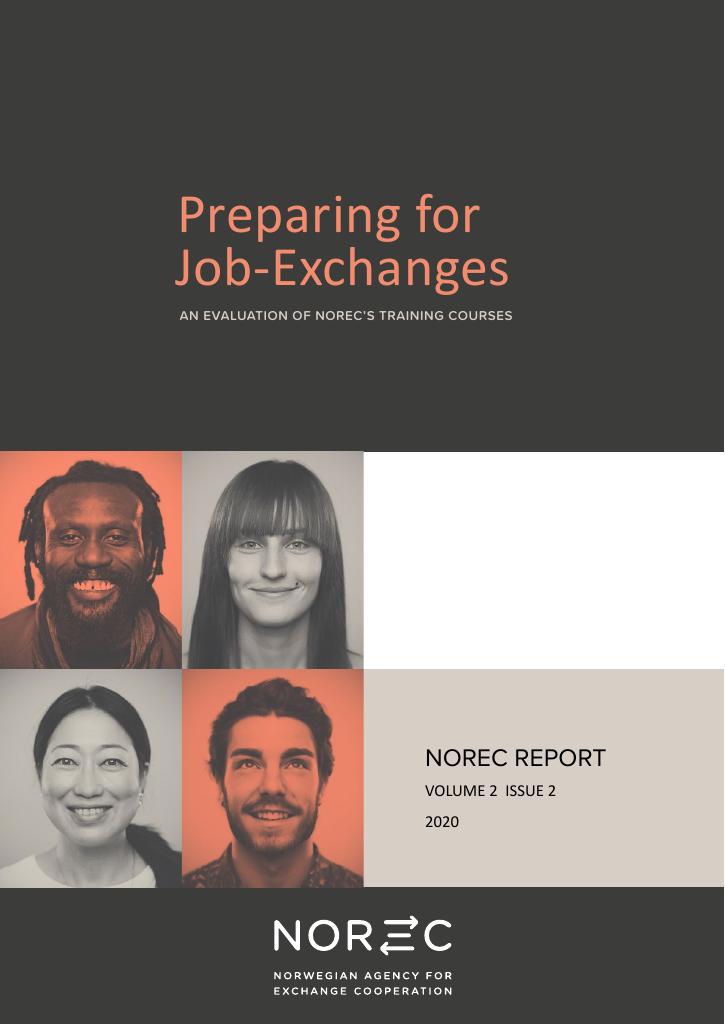Evaluering
Preparing for job-exchanges : An evaluation of Norec's training courses
In this report we evaluate to what extent Norec's different course models and training contribute to relevant and meaningful job-exchanges. The evaluation is based on data collected from previous reports and evaluations, two surveys, one survey directed to previous participants and the other for existing Norec partners. In addition, we collected data through in-depth interviews with Norec staff, trainers, partners and participants. Training is an essential part of Norec’s methodology and efforts in reaching the Sustainable Development Goals. Norec provides training courses for its partners and participants, however, in this evaluation, we only assess the courses provided to the participants. The courses are designed to encourage active participation and make use of a variety of teaching methods to increase motivation, to be a proponent of change and to foster personal reflection. By creating reflection among the participants, Norec also succeeds in making the participants reflect upon themselves as being a part of a global development partnership. Norec is highly successful in achieving their training and learning goals. Norec partners and participants perceive the Norec trainings as useful, relevant and fit for purpose. South participants are slightly more positive about the courses than their North colleagues. There is an opportunity to improve the learning outcomes from Norec’s homecoming seminars. The courses are currently responding first and foremost to the participants’ personal challenges and needs while on exchange, and we believe that Norec will increase the learning outcomes if the courses also focus more on the professional re-integration of the participants. Norec partners are also conducting preparatory and homecoming courses. These are important, in particular as they provide information and knowledge of importance for the actual job execution. Due to little collaboration between Norec and the partner organisations, and unclarity on how the parties may complement each other’s training, a more structured collaboration would most likely increase the learning outcomes for the participants. A key factor for the success of the Norec trainings, is that they provide for physical events where people from all over the world meet to learn, listen and create networks. The participatory methodology is important for creating the level of reflection and insights that Norec is aiming to achieve. Furthermore, there are good opportunities for moving parts of the trainings to digital platforms. In the preparatory phase we believe that introduction and theoretical topics may be moved to interactive and participatory e-learning modules. During the exchanges, Norec could consider contributing with closer follow-up through digital platforms for further capacitation and skill development of participants. The training is found to be cost-efficient, with comparable costs to peer organisations. We have, however, identified some opportunities for cost-saving. There are also efforts underway in Norec to reduce the organisation’s carbon footprint, which also have a positive impact on costs. Norec’s new strategy states a goal of being a centre of competence for international exchanges. Norec has a unique position for this as a leading actor in the area of international exchanges. For Norec to fulfil the role as centre of competence, the organisation needs to institutionalise learning and knowledge management and build an online knowledge bank for training and international exchange. This could in part be achieved by building on the capacities of its instructors, establishing a corps of instructors as a central part of the organisation’s competence.
